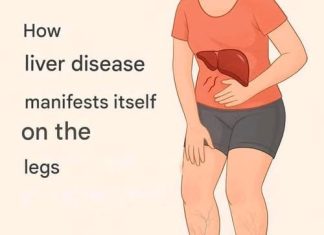Your body often gives subtle but clear signals when something is amiss. Ignoring these signals can lead to serious health issues down the line. While it’s natural to brush off minor aches or slight discomforts as part of daily life, certain signs deserve immediate attention. Understanding these signals and responding proactively can be the difference between minor treatment and a major health crisis.
One of the most critical signs you should never ignore is persistent fatigue. While occasional tiredness is normal, especially after a busy day, ongoing fatigue can signal a deeper problem. It could indicate conditions ranging from thyroid issues, anemia, sleep disorders, or even heart disease. Constant exhaustion that interferes with daily life warrants a thorough medical check-up.

Another symptom that is commonly overlooked is unexpected weight loss. Losing weight without actively trying might initially seem like a pleasant surprise. However, unintended weight loss can be indicative of serious illnesses such as diabetes, hyperthyroidism, depression, or even cancer. Monitoring your weight regularly and consulting a healthcare professional if you notice sudden, unexplained changes is crucial.
Persistent headaches also fall into the category of warning signs that shouldn’t be ignored. Occasional headaches due to stress, dehydration, or fatigue are common and typically resolve quickly. However, chronic or unusually severe headaches could signal serious conditions like migraines, high blood pressure, or neurological problems. Seeking professional medical advice is essential, particularly if these headaches are accompanied by other symptoms such as dizziness, blurred vision, or nausea.
Chest pain is an alarming symptom that demands immediate attention. While it could simply be acid reflux or muscle strain, chest pain is often associated with heart-related problems like angina or a heart attack. Especially concerning is pain accompanied by shortness of breath, dizziness, or nausea. Prompt medical evaluation can save your life.
Shortness of breath during normal daily activities is another sign you shouldn’t overlook. While becoming breathless after vigorous physical exertion is expected, experiencing difficulty breathing during routine tasks might point towards respiratory or cardiovascular issues, such as asthma, chronic obstructive pulmonary disease (COPD), or heart failure. Early diagnosis and management of these conditions significantly improve outcomes and quality of life.
Frequent digestive problems, including persistent bloating, stomach pain, or changes in bowel habits, can also signal underlying issues. Digestive symptoms are commonly linked to conditions such as irritable bowel syndrome (IBS), inflammatory bowel disease (IBD), ulcers, or even colorectal cancer. Keeping track of your digestive health and consulting a doctor if symptoms persist can lead to early detection and treatment.
Skin changes, such as new moles, changes in existing moles, or unexplained rashes, should never be taken lightly. These can be indicators of skin cancers like melanoma or other dermatological conditions. Regular skin checks and reporting changes promptly to your doctor enhance early detection and improve prognosis.

Finally, unexplained fever warrants attention. While occasional fevers might indicate minor infections or illnesses, persistent or recurrent fevers without a clear cause could suggest autoimmune diseases, chronic infections, or cancers. Persistent fever is your body’s clear signal that something significant is happening internally.
In summary, paying close attention to these signs and seeking prompt medical advice ensures early detection and effective management of potential health problems, safeguarding your well-being and quality of life.

















